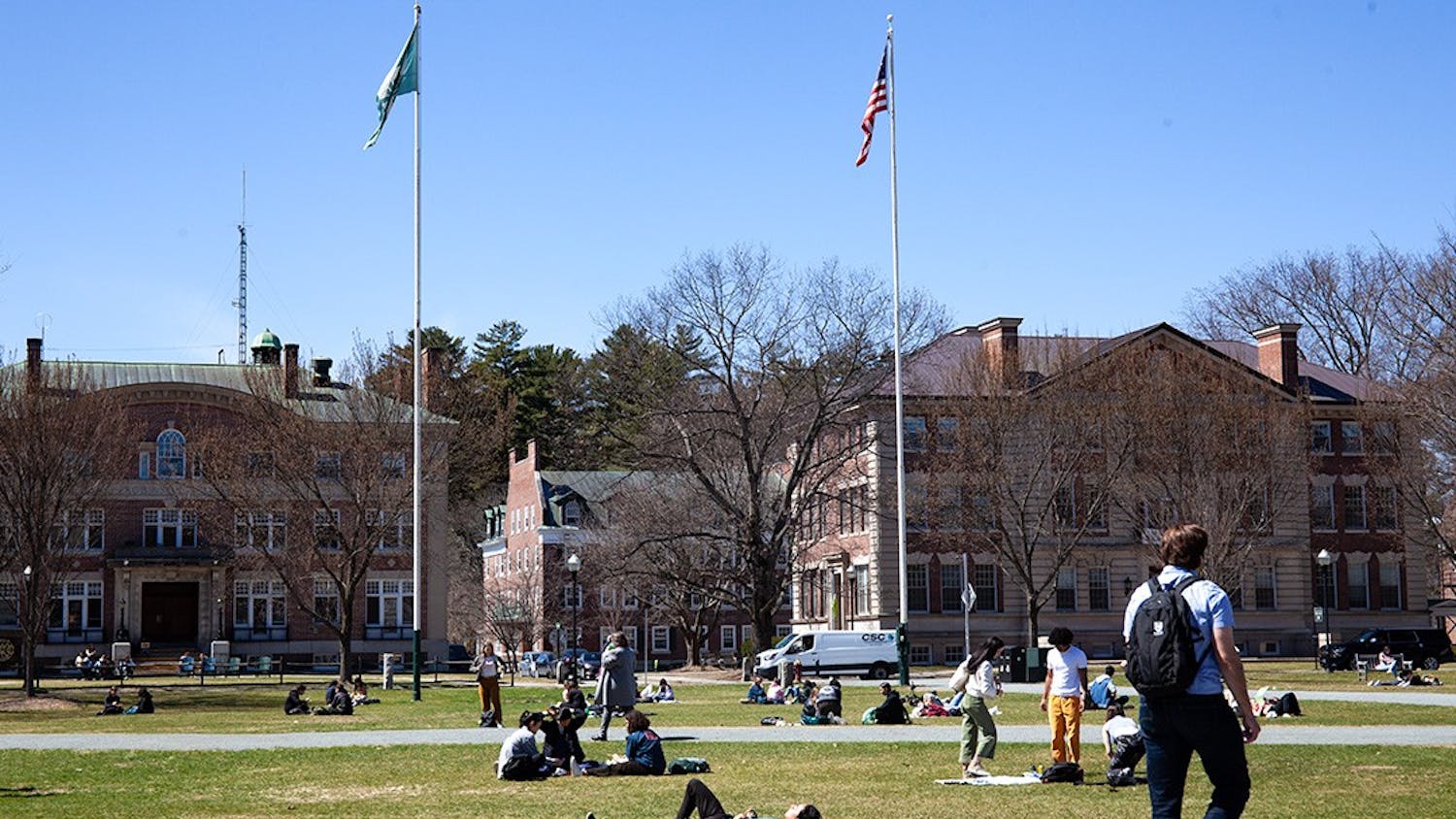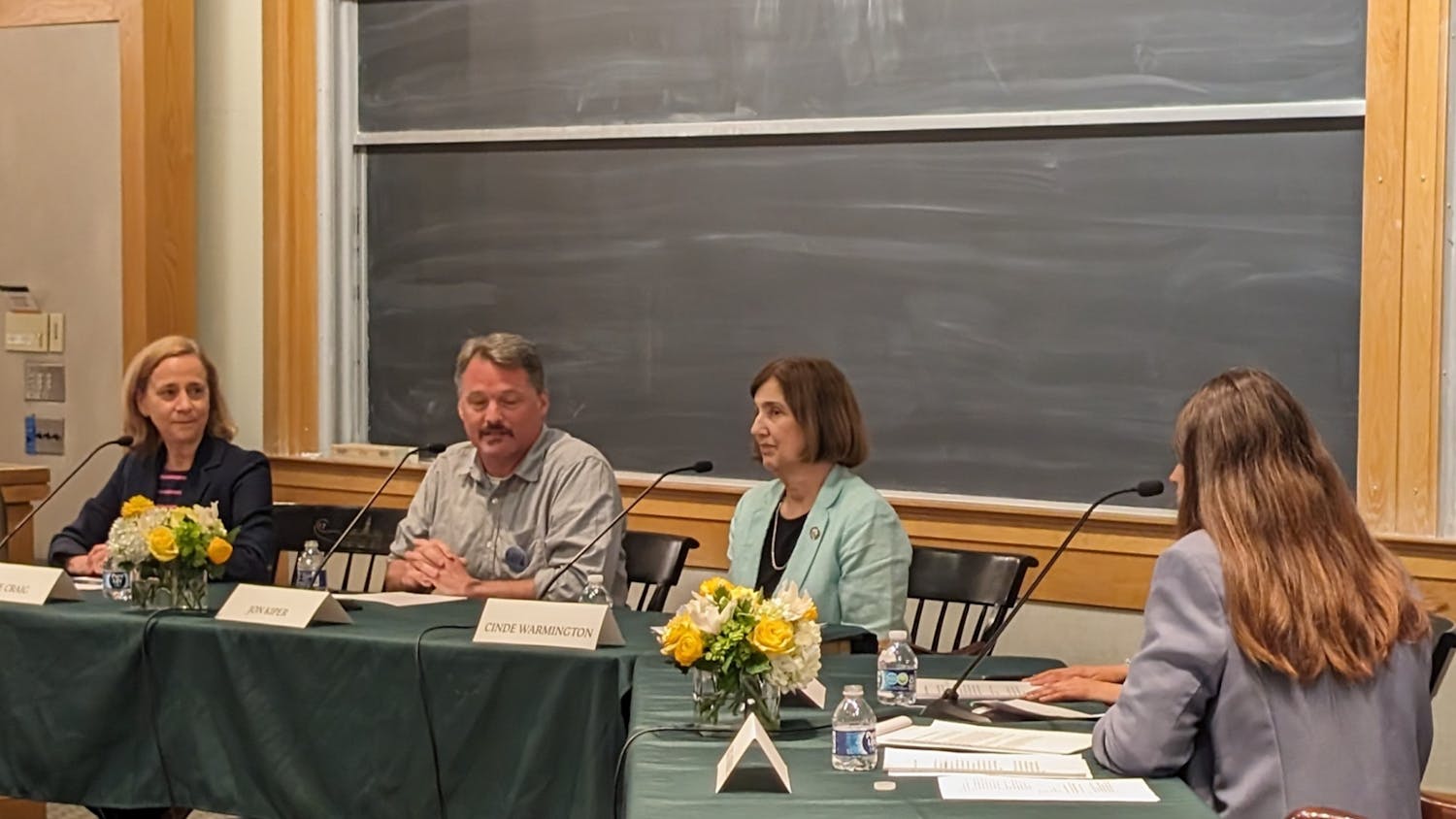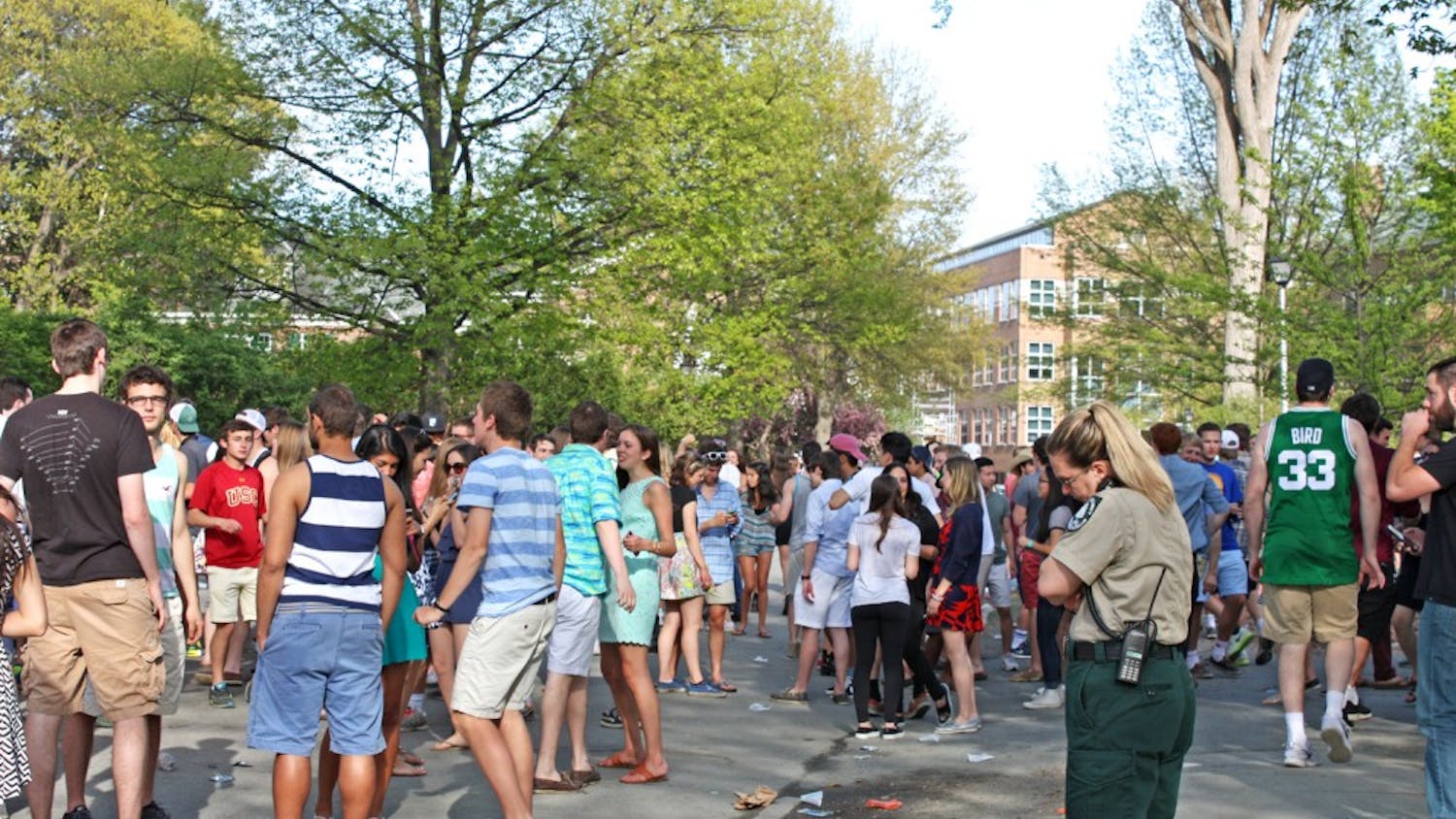"I wrote 40 pages in the last week and a half," said Kathleen Onufer '08, who is writing an 85-page environmental studies thesis on institutional governance and sustainable development.
The College requires that students receive at least a B+ for their thesis and associated honors classes in order to graduate with honors. Requirements for entry into individual honors programs vary among the College's different academic departments. The government department, for example, requires a 3.5 grade point average in the major and a 3.3 GPA overall for acceptance into the honors program, according to department chair and professor William Wohlforth.
The government department has received theses as large as 250 pages, John Carey, director of the government honors program, said, although he emphasized the importance of paring down ideas and focusing them.
"A lean, mean thesis is better than a gigantic brick," he said. "A 200-page thesis could often be better if it's 125 pages."
Gary Caplan, owner of Gnomon Copy on Main Street in Hanover, prints close to 200 undergraduate theses a year, he said. The longest thesis Caplan recalled printing was 500 pages.
Although all senior theses are kept in the archives of Rauner Special Collections Library, some thesis research achieves more public attention. Honors mathematics student Rob Taintor '08 submitted part of his thesis work to the Journal of Theoretical Computer Science, according to department chair Daniel Rockmore. Kabir Sehgal '05 developed his undergraduate music thesis into a recently published book, "Jazzocracy," Theodore Levin, chair of the music department, said.
Wohlforth said that students undertake honors work for the "sheer intellectual challenge and pleasure."
"You will never do anything more challenging," he said. "Basically, you are creating knowledge."
Carey noted that writing a thesis is also good preparation for graduate school work.
Tyler Frisbee '08, who is writing a government thesis, "Divided We Fail: The Importance of Division in Gubernatorial Primaries," said that part of the reason she undertook the "burden" of writing a thesis was to challenge herself to know something really well.
"I feel like at Dartmouth there is so much learning how to criticize and not how to create," she said.
Frisbee advised underclassmen to pursue a thesis only if they have a topic and a faculty adviser in mind.
"Don't do it if you just want the prestige or to be really hardcore," she said.
Onufer said that writing her thesis required a lot of work, but was not the "end all, be all" of her senior year.
"I didn't disappear," she said. "It's totally fine not to write one, but it's also totally possible to write one that adds a lot but doesn't dominate your life," she said.
Megan Paradise '08, however, said that she has "barely" managed to take a full course load every term of her senior year while writing the thesis. Paradise's anthropology thesis deals with agricultural practices in India.
Bailey Massey '08 pursued a different track, writing the first season of a television show for the film and television studies department. Massey opted to do an honors project instead of a conventional thesis because she was "already dreading" the idea of writing a thesis before it had begun.
"Be willing to do something creative," she said.




